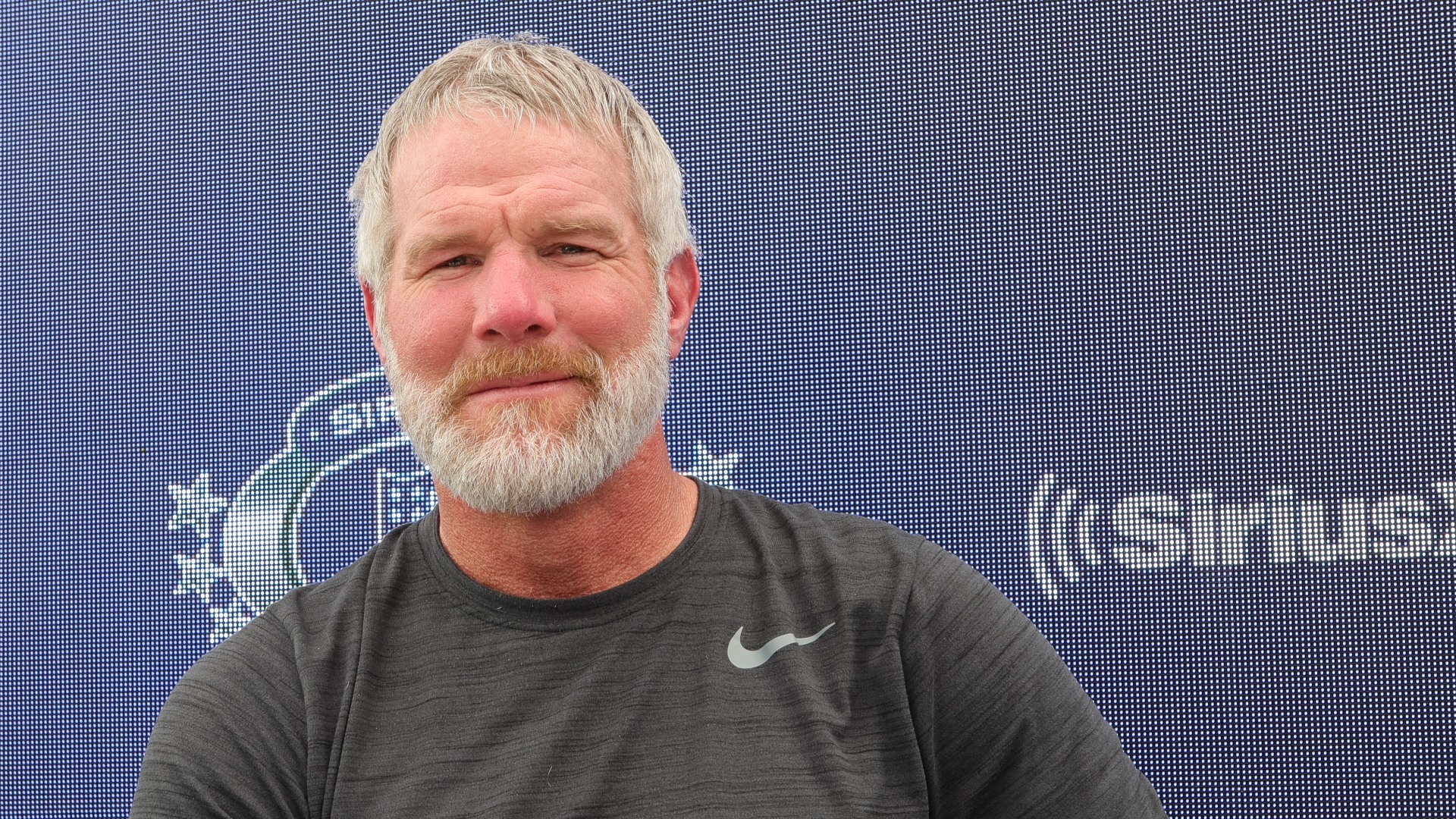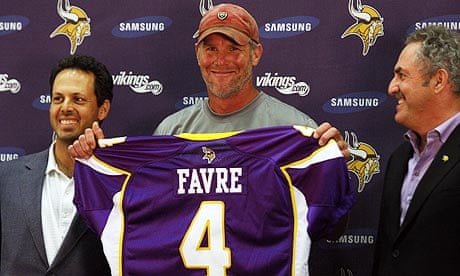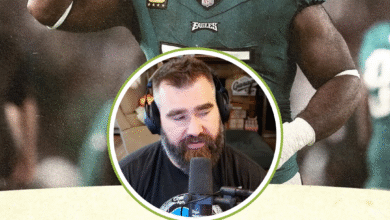Favre Speaks Out: “I Never Knew If I Loved Football—My Dad Expected It !
OPINION: This article may contain commentary which reflects the author's opinion.
When people talk about NFL legends, Brett Favre’s name stands tall as one of the most iconic figures in football history. With a career spanning 20 seasons, three consecutive MVP titles, and a Super Bowl championship, Favre is the epitome of grit, resilience, and raw talent. But behind the spotlight lies a more complicated narrative—a story that began in the small town of Kiln, Mississippi, where his father wasn’t just a coach, but a constant force of discipline, expectation, and pressure.
So the question remains: Did Brett Favre genuinely fall in love with football from the start, or was it a path laid out—and enforced—by his father?
Childhood in the Favre Family: Home or Boot Camp?
Brett Lorenzo Favre was born on October 10, 1969, the second of four sons to Irvin and Bonita Favre. His father, Irvin, was the football coach at Hancock North Central High School—the same school Brett would later attend. In the Favre household, sports weren’t simply an extracurricular activity; they were a way of life.
From a young age, Brett and his brothers were put through rigorous training routines. Summers began with early morning runs, throwing drills, and lessons on reading defensive plays. To Irvin, there was no room for softness. He believed success was built on discipline and repetition, and he pushed his sons accordingly.
Many close to the family recall how Brett was terrified of disappointing his father. He wasn’t just competing to win games—he was striving to earn his father’s rare approval, a pat on the back that didn’t come easily.
Genuine Passion or Conditioned Obligation?
Although football was always part of his life, Brett once admitted in an interview that he didn’t really know if he loved the sport during his early years. “I don’t think I ever asked myself, ‘Do I love this game?’ I just knew it was something my dad expected of me,” he said.
Over time, what started as a responsibility evolved into something more. Favre’s natural talent began to shine—his rocket arm, quick instincts, and fearless attitude caught attention. Despite not playing at a major college program, Favre made it to the NFL, first drafted by the Atlanta Falcons in 1991 before being traded to the Green Bay Packers—where his legend was born.
Sports psychologists often refer to cases like Favre’s as examples of “external motivation becoming internalized.” In other words, what begins as outside pressure (from a parent, coach, or system) can, over time, transform into personal passion. It’s not an easy journey—but it’s one that many elite athletes share.
A Complex Father-Son Relationship
Irvin Favre wasn’t just a disciplinarian—he was also Brett’s biggest supporter. When Brett reached the NFL, Irvin would often sit in the stands, watching silently with a coach’s eye, analyzing plays rather than simply enjoying the game as a father.
But their relationship was far from easy. At times, Brett felt exhausted, even broken. The constant pressure to perform—not only for his team but for his father—led to moments of deep personal struggle. In the mid-1990s, Favre battled a painkiller addiction and suffered quietly through depression.
When asked about the root of these challenges, he pointed back to his upbringing: “I never really learned how to rest. My dad taught me that rest was weakness.”
Still, when Irvin passed away unexpectedly in 2003, Brett responded in the most powerful way possible—with a legendary Monday Night Football performance against the Oakland Raiders. He threw four touchdowns in the first half alone. After the game, holding back tears, he said, “I played like my dad was watching from the stands.”

Out From His Father’s Shadow
In the years following Irvin’s death, Favre began to redefine his relationship with football. He continued to play with fire and passion—suiting up for the Jets and later the Vikings—but he also started speaking more openly about his emotional growth, his battles, and his gratitude.
As a father himself, Brett took a softer approach with his own children. “I want them to find what they love,” he once said. “Football was my life, but that doesn’t mean it has to be theirs.”
He also began to reflect more publicly on the intense pressures he faced and the blurred lines between love and obligation. His openness helped fans see a deeper, more vulnerable side of the tough-as-nails quarterback.

Conclusion: Passion Can Be Built, but It Needs Care
Brett Favre’s story proves that passion doesn’t always begin as a burning desire. Sometimes, it’s shaped by discipline, molded by family expectations, and sharpened under pressure. But when nurtured with time, reflection, and heart—it can evolve into something powerful and real.
For Brett Favre, football may have started as a path chosen by someone else. But through perseverance, struggle, and eventually self-discovery, he made that path his own. He didn’t just become a great quarterback—he became a symbol of what it means to fight for control of your own story.
So, was it passion or pressure? Maybe both. But in the end, what matters most is that Brett Favre turned it into something unforgettable.



